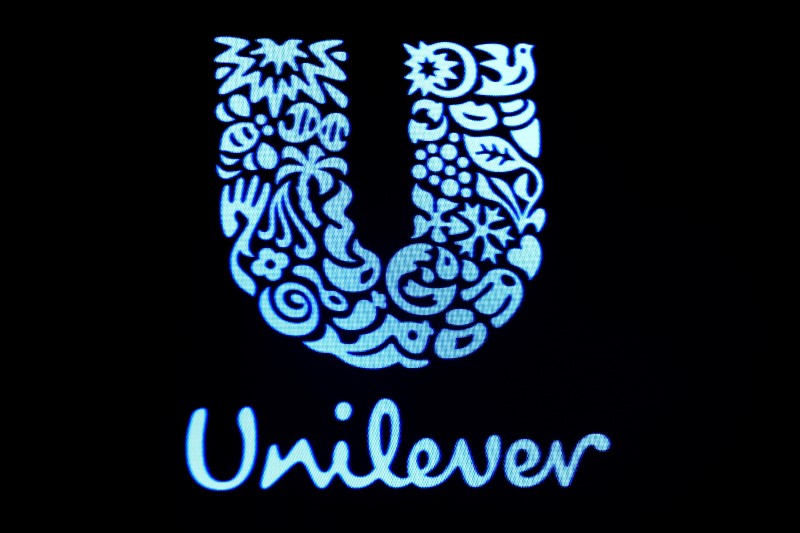By James Saft
(Reuters) - In a world in which most investment managers are paid to be short- or medium-term in their thinking, companies taking the long view prove the best bet.
This is one of the central ironies, not just of a delegated investment system, but of the economy itself: patience pays but is not usually rewarded.
Unilever (LON:ULVR), a company long regarded as particularly focused on the long term, rejected last week a $143 billion offer from fellow food giant Kraft Heinz, in part, according to published reports, because it feared it would be forced into short-sighted cost-cutting.
That may well have been wise, at least based on a reading of a discussion paper released earlier in February by the McKinsey Global Institute think tank which found companies taking a long-term view outperform in everything from financial performance to job creation. (http://www.fcltglobal.org/docs/default-source/default-document-library/20170206_mgi-shorttermism_vfinal_public.pdf?sfvrsn=0)
Looking at 615 non-finance companies between 2001 and 2015 the study devised a 'Corporate Horizon Index' in an attempt to capture which firms were playing the long game and which bending with the changing winds.
A total of 164 firms made the cut as 'long term,' and from a shareholder's point of view, the results were pretty good.
“Long-term companies exhibit stronger financial performance over time. On average, their market capitalization grew $7 billion more than that of other firms between 2001 and 2014. Their total return to shareholders was also superior, with a 50 percent greater likelihood that they would be top decile or top quartile by 2014,” according to the study.
Interestingly, although the long-term cohort got hit harder by the fall in equity markets during the financial crisis, their share prices recovered faster.
Overall, short-term focus as measured by the study has risen since 2001, a point which accords, at least superficially, with widespread concerns over the level of investment and a widespread corporate preference for financial engineering over franchise building.
It is a common observation that while most fund and company managers live and die quarter by quarter, the vast majority of investors are managing their savings for the distant future.
HOW TO PICK A LONG-TERM COMPANY
The study rated firms on five measures:
First was the ratio of capital expenditure to depreciation, a good guide to investment.
Second was accrual compared to revenues, which can tip which companies are displaying earnings which reflect underlying cash flow and which may be using accounting to flatter themselves.
Third was the difference between earnings growth and revenue growth, which can reveal which firms are growing margins in an unsustainable way in order to make their numbers.
Fourth was a measure of how often firms 'barely' make their earnings-per-share targets or just miss them, again a good marker of who is managing the business and who is managing Wall Street expectations.
Fifth was the difference between earnings per share growth and gross earnings growth, an indicator of how aggressive firms are being in buying back shares to boost EPS.
As ever, correlation is not causation but the long-term results of the 'long-term' cohort were a heck of a lot better than the rest.
Over the time of the study average company revenue grew by 47 percent more at long-term firms compared to the rest, average earnings by 36 percent more and economic profit by 81 percent more. Important to note that these results were relative to industry peers with similar opportunities, operating in similar markets, so this is not simply an exercise in picking winners from secular change.
If all firms had done as well, U.S. market capitalization would have been 4 percent higher at the end of the period, a gain of more than $1 trillion.
And for you secular stagnation worriers out there, the economic impact of wider long-term management could also be huge. The long-term firms created more jobs and more output.
“The potential value that could have been unlocked had all U.S. publicly listed companies taken a long-term orientation exceeded $1 trillion over the past 10 years, or 0.8 percent of GDP per year on average,” according to the study.
All of this needs much more study, but the potential implications are huge.
My guess is that what we are seeing with short-term management is the result of how managers, at fund firms and at companies, are paid. If you are rewarded with share options and continued employment for meeting your 'numbers' or for sticking close to the pack as fund manager that’s what you’ll do.
If you want long-term rewards you have to reward long-term management.

(James Saft is a Reuters columnist. The opinions expressed are his own)